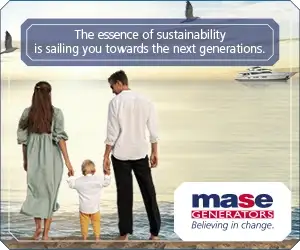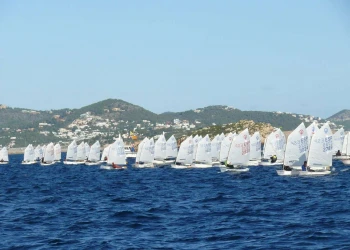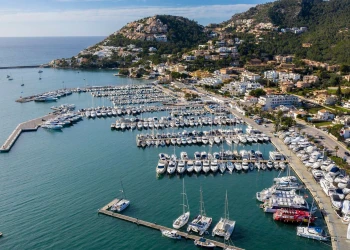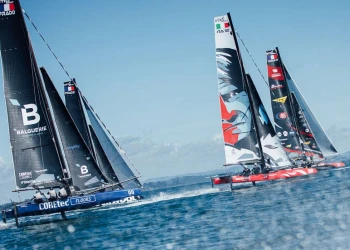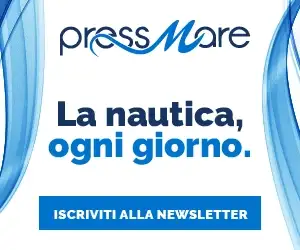
Forward thinking eco-apparel brand Oceanr showcases its fully-sustainable economic ecosystem
OCEANR showcases its fully-sustainable economic ecosystem
Forward-thinking eco-apparel company Oceanr has unveiled its latest move towards creating a fully-sustainable economic ecosystem for its products. Hailing from Cork in Ireland, Oceanr was founded in 2016 by keen environmentalist and water-sports obsessive Tom Cotter.
Oceanr has been at the heart of a quiet revolution in sustainable fashion since its foundation, crafting high-end apparel for superyachts, luxury resorts and private clients from all over the world, with partners including Richard Branson’s Necker Island, Four Seasons Resorts worldwide, and notable superyachts including Endeavour, Legend, and Scott Free.
Shortly after debuting its brand-new sustainable range of yacht crew uniforms during Monaco Yacht Show 2022, Oceanr scooped up the Bita Green Business Award 2022 thanks to the company’s clear dedication to the cause of sustainability and demonstrating “a strong commitment to environmentally-friendly business practices throughout the company” (Discover more about the award here).
A detailed economic ecosystem
With all of the above in mind, the six pillars from Oceanr represent a natural progression of the eco-friendly ethos of the business from its people, to its product to our planet. Vitally, for Oceanr, when it comes to sustainability and transparency, concrete action, not words, is the key.
1: Community
Pillar 1, ‘Our Community’ focuses on building upon the existing strength of Oceanr’s diverse and international team who work to make its products into a reality.
This spans the production team based in Riga, Latvia which carefully crafts the items from the most sustainable fabrics and production methods, the customer success team which discovers and maintains Oceanr’s loyal client base, and its international R&D team which is continually improving and streamlining Oceanr’s products to keep abreast of ever-changing market demands.
2: Eco Fabrics
Ever since the company’s inception in 2016, it has been committed to the use of recycled fabrics and it continues to strive to source the most sustainable and innovative fabrics for its range of products. Its recycled polyester originates partially from discarded fishing nets, other ocean waste and recycled plastic bottles, thus contributing to the cleanup of the ocean.
Oceanr’s recycled polyester fabrics harness technology from Oceanbalancetm: a sustainable fabric brand owned by Oceanr following its acquisition of Aspect in Latvia. The brand has a total of 18 sustainable fabric types all sourced from verifiable recycled materials, and Oceanr is currently working on the design of five brand new ones.
Alongside its carefully-sourced, Gots-certified 100% organic cotton, Oceanr is currently investigating how it can use pineapple leaf fibres, specifically Piñatex, as a sustainable alternative to leather – and is always on the lookout for better, healthier, and more eco-progressive fabrics and trims.
3: Traceability
“It is essential to tell the truth! It does not matter for the consumer if it is one thing or another, what really matters is to be authentic”, explains Oceanr founder Tom Cotter.
As a clear commitment to this ethos, Oceanr is proud to announce that it has joined forces with BCOME: a Barcelona-based organisation which empowers companies in the textile industry to build responsible supply chains and guarantee transparency for the end customer. From this, the pillar of ‘Traceability’ was born.
Founded in 2019 by Alba García and Anna Cañadell, BCOME is a pioneer in the application of smart methodologies for global sustainability management, with more than 1 million traced, measured and evaluated products already on the market.
Harnessing BCOME’s smart methodologies for global sustainability management, Oceanr will carry out a full life-cycle analysis all of its products to assess their current eco-impact, as well as putting the systems and processes in place for all new products.
As Cotter explains: “I think it is quite impressive that 50% of fabrics comes from the ocean waste, and other 30-40% comes from recycled polyethylene. So, we are reducing our water consumption by 20%, energy consumption by 50% and CO2 emissions by 60%* (*Estimated data on recycled vs conventional polyester). Traceability is just one way of staying accountable to our customer base – and to the planet.”
Notably too, before Christmas, Oceanr will have a QR code applied to any product so that consumers can learn all about it by scanning it: where the plastic comes from, how long the product has traveled, the people involved and much more via a user-friendly metric layout.
4: Take it Back
Since its foundation, Oceanr has striven to help reduce textile waste by building a circular clothing system, where there is a more efficient use of resources, and the upcycling of waste into new fabrics or products, so that they can be used multiple times.
As part of its ‘Take-Back Program’, Oceanr will collect used materials from resorts, businesses and consumers and reintroduce them to the original processing and manufacturing cycle, as well as teaming up with end-of-life logistics and material processing firms to give new purposes to old life.
Circularity within the supply chain is crucial to Oceanr, as Cotter highlights: “We have recently introduced the idea of returning garments at their end-of-life in order to repair or recycle them. Basically, we offer our clients a discount for new order for whatever product they return to us.”
5: Beyond Carbon Neutral
Oceanr has partnered with pioneering eco-organisation ‘Plant-for-the-Planet’ to offset its carbon footprint and go far beyond being simply ‘carbon neutral’ (which was already achieved by the organisation back in 2020). Plant-for-the-Planet boasts a total of 225 global projects which are currently underway and aims to plant a trillion trees overall, with the support of companies around the world, including Oceanr.
Oceanr aims to reach the status of carbon neutral +20% for its activities in 2023, creating a direct link between revenue, tree planting and carbon reduction. As Cotter explains: “Through a targeted life cycle analysis, we can get accurate data about how much carbon is in each product. We are also committed to planting trees as a CO2 compensation measure. The more the company grows, the more we will focus on this commitment.”
6: A Kilo for the Planet
Finally, there is the pillar for which Oceanr is proud to support ‘A Kilo for the Planet’. For every product sold by Oceanr, 1 kilo of ocean waste is removed, thanks to its partnership with Enaleia.
Enaleia is a social start-up founded in 2016 in Greece which encourages fishermen to adopt sustainable fishing techniques and assists in the reduction of ocean plastic by ‘fishing for it.’
Cotter highlights the impact: “So far, Enaleia has removed 4,000 kgs of marine plastic (marine litter) from our oceans every week, while increasing the income of over 700 fishermen. That is definitely a win-win combination for the planet’s sake.” Indeed, the numbers speak for themselves: Since 2016, a total of 269,980 plastic bottles have been removed from the sea.
Just the beginning…
For Oceanr, these pillars represent only scratch the surface of the company’s initiatives to build a fully sustainable economic ecosystem.
Cotter offers a flavour of the rest: “Education for the next generation is absolutely key. We actively support communities that are engaged in nature preservation initiatives or educational programs for children and adults in Indonesia and various other countries. For us, it is vital that we move beyond attractive words and ‘greenwashing’ into concrete action.”

